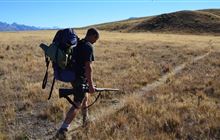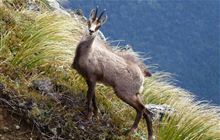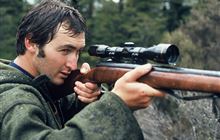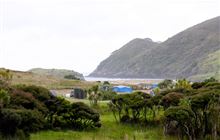Call for hunters to put safety first this Easter
Archived content: This media release was accurate on the date of publication.
Introduction
DOC is urging deer hunters to take care during the peak of the roar this Easter weekend, as data shows a spike in hunting activity leads to an increase in injuries.Date: 24 March 2021
Last year’s roar hunt was cancelled due to the COVID-19 Level 4 lockdown. It’s predicted more hunters than ever will head to the hills this autumn chasing stags.
DOC’s Visitor Safety Manager Andy Roberts says each year during the roar there is a spike in hunting accidents, such as slips, trips, falls or firearm injuries.
ACC data shows there were 435 hunting related injury claims made during the last roar in 2019 (March and April), up 31% on the same period in 2018.
“Because hunters haven’t been able to enjoy the roar for two years, we’re expecting to see a large number of people hunting on public conservation land over Easter, which could lead to an increase in injuries,” says Andy Roberts.
“We’re asking hunters to think about their hunt, plan well and look out for each other. There will be lots of recreationists enjoying the outdoors over the long weekend and hunters should expect to share huts, campsites, and tracks with others.”
The New Zealand Police, Game Animal Council, Mountain Safety Council and New Zealand Deerstalkers Association, are also reminding hunters to keep safe during the roar.
Mountain Safety Council data shows between 2004 and 2016, 12,628 hunters were injured. 44% of all injuries were due to slips, trips or falls, while 10% were a result of hunters carrying heavy loads. During this period, 4.9% of all injuries involved firearms discharging. A hunter last accidentally shot and killed another hunter in 2018.
A leading hunting researcher is backing DOC’s concerns. Dr Karl Bridges recently published his thesis examining the human factors behind hunting fatalities and has provided hunting safety advice to DOC.
During a simulation experiment, Dr Bridges found hunters tend to overestimate the time they took to identify their target by as much as 25%.
“What felt like 2 minutes for a hunter to identify their target and place a shot, was actually only 90 seconds. Taking an extra 30 seconds and slowing down could mean the difference between life or death.
“Sadly, most hunters who have killed someone believed they were shooting a deer and had identified all parts of it. That’s why I’m urging hunters to focus more on the way they hunt, slow down and take their time to identify their target this Easter,” says Dr Bridges.
DOC’s top hunting tips
- Stay within your comfort zone.
- Be mindful of other people and expect to see recreationists.
- Tell someone where you’re going before you leave home.
- Make sure you have the right gear and dress for the conditions. Take a personal locater beacon with you.
- Store firearms safely when near huts or campsites.
- Follow the rules and make sure you have an active hunting permit.
- Wear high-viz, especially if you’re carrying animals out.
- Make sure when you call a stag, you’re not calling in a hunter.
The Mountain Safety Council has released a video reminding hunters to be well prepared for the roar: Same hunt. Different story
Background information:
Dr Karl E. Bridges thesis is available to download Behavioural, cognitive, and psychophysiological predictors of failure-to-identify hunting incidents.
Mountain Safety Council’s A Hunters Tale 2017 is available to read online.
Deer roar:
- The annual red deer roar runs from March to late April. During the roar, large male deer are less cautious and noisy while trying to attract a mate. This makes them easier to hunt.
- Red deer are a widespread species and can be hunted on public conservation land throughout New Zealand, except for Northland and Taranaki.
- Deer are managed under the Wild Animal Control Act 1977 because of the impact they can have on the environment. Deer target seedlings and other highly palatable plant species. The impact of high deer numbers can change the structure and composition of native ecosystems.
Contact
For media enquiries contact:
Email: media@doc.govt.nz




